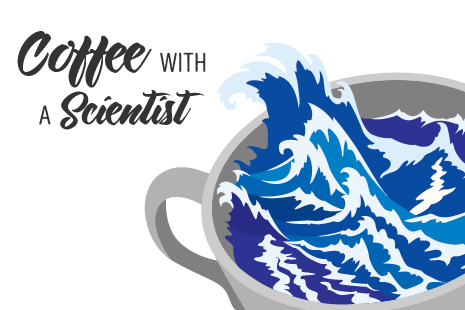March 15: Coffee with a Scientist
Join Dr. Emily Hall, Mote Marine Laboratory’s Ocean Acidification Program Manager, for coffee and pastries at Mote’s Boca Grande office (480 East Railroad Ave., Railroad Plaza, Boca Grande, FL 33921).
The free public discussion is from 9 a.m. to 10:30 a.m. After a brief presentation about her research, Hall will be available for casual conversation and Q&A.
Hall first became involved with Mote in 1999 when she was an intern conducting clam and oyster surveys in the Peace River and Charlotte Harbor. She did a project back then on how clam and oyster shells react in reduced pH environments.
Now, 17 years later, as Ocean Acidification Program manager, she is developing ocean acidification and climate change experimental systems in the Florida Keys and in Sarasota to research and understand responses of ecologically and economically important species such as corals and other marine organisms to changes in pH and climate change (ocean temperature).
Ocean acidification (OA) is one of the greatest global threats to coral reef ecosystems. OA refers to the chemical reactions when carbon dioxide (CO2) is absorbed by seawater. This water chemistry change is expected to weaken and even dissolve calcium carbonate structures such as coral skeletons and mollusk shells, and it may affect a wide array of other marine animals and ecosystems.
“I hope that from this casual discussion about OA, people will learn about some of the effects of OA and climate change on our marine ecosystems and what we can do to alleviate the effects,” Hall said. “We will also talk about how these global issues can affect our local ecosystems, like in Charlotte Harbor.”
